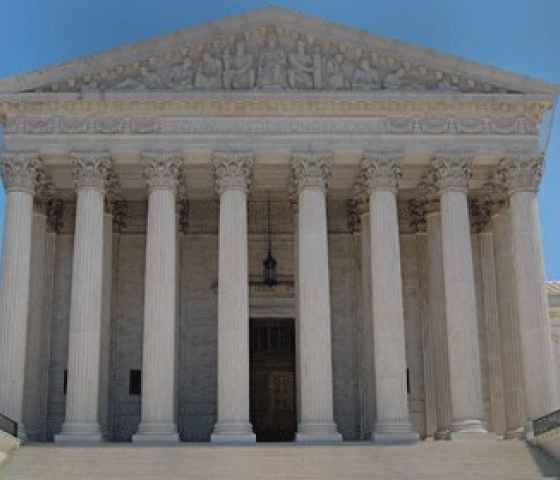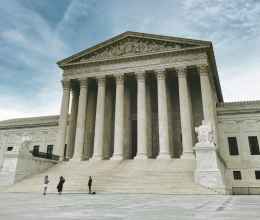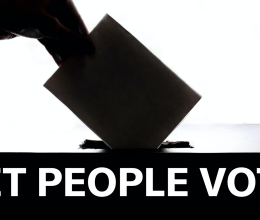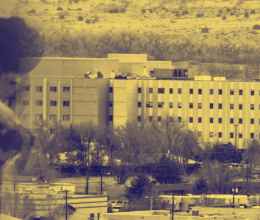When the New Mexico Voting Rights Act was signed into law, there was an air of relief and gratitude for the hard work and opportunity we had been presented. For the first time in New Mexico’s modern history, voters, advocates, and elected officials will be able to collaborate meaningfully to engage more people than ever before.
There’s so much eagerness in the community to get to work on connecting people to our collective power.
Its passage was a long time coming and the result of decades of work by multiple communities and advocacy groups in our state and nationally who never gave up on the fight to ensure everyone has the opportunity to vote.
We are so proud New Mexico is now a real leader in access to the ballot. While other states’ legislatures and conservative federal courts are chipping away at voting rights, making it harder for people of color, young people, and people who were formerly incarcerated to vote, New Mexico is moving in the opposite direction.
There’s a lot to this new law, which will begin implementation this July, but we can break it down into two main sections: rights restoration and the Native American Voting Rights Act.
Voting Rights Restoration
Like many states, New Mexico already had a law on the books for over 20 years that technically allowed people who had been incarcerated to regain their right to vote when they did their time and reentered society. But like many states, the process was by design so difficult to navigate that very few people managed to do it.
It was a demoralizing, dehumanizing system.
Imagine having to get multiple reference letters and approvals from state offices only to have county clerks – who didn’t always know what they were looking at – determine your forms and letters weren’t valid. To fix this, you would need to get a letter from the governor stating otherwise.
For most people, these were barriers they just couldn’t get past.
With this new law, when people reenter society, they automatically regain the right to vote. This empowers 11,000 to get out and participate in the democratic process right now.
For many people who worked to get this legislation through, it was a very personal journey. A lot of blood, sweat, and tears went into this work. People who had been caught in New Mexico’s carceral system never gave up on pushing for this law and changing the narrative in the Roundhouse. They shared their stories with the public and showed up in force at the legislative session. It was such an inspiring, well-earned win.
Native American Voting Rights Act
New Mexico made history this session with the first-in-the-nation Native American Voting Rights Act (enacted by the New Mexico Voting Rights Act). It will have a huge impact on expanding and protecting Native communities’ right to vote in our state.
The right to vote is relatively new to Native people in the United States. Miguel Trujillo, a veteran from Isleta Pueblo, successfully sued to get the right to vote in New Mexico in 1948, but it was one victory in a long, ongoing battle. Here and across the country, Native communities are systematically, and intentionally, disenfranchised.
Local governments have more strategies to cut Native voters out of the democratic process than you can shake a stick at: denying funding for polling locations, lack of language access, placing polling locations hundreds of miles away from tribal communities, not recognizing rural addresses, failing to consult with tribes before changing elections and more.
Given this history, and years of failed attempts to get the Native American Voting Rights Act passed in New Mexico, this win was a major shift. Last year, in a very painful process, we got close, but the bill was filibustered in the final hours of session. This year, with the collaboration of tribal leaders and tribal voting groups, the Native American Voting Rights Act moved through the legislature with bipartisan recognition of the need to ensure tribal communities, especially rural ones, have same right to vote as any other community.
There was amazing collaboration among advocacy groups, electeds, and tribal leaders in the bill’s creation and in the work to get it across the finish line. Dozens of community groups representing tens of thousands of New Mexicans came together to makes this happen, and all 23 Tribes in New Mexico supported it.
It’s important to point out that this respect for tribal sovereignty has a lot to do with the fact that three Native American legislators were sponsors of the bill. Representation truly matters.
Because Tribes had input, the law mandates consultation and cooperation with the Tribes so that the people who know their community most, make the decisions about what is needed. For example, the law creates more clarity on how people register to vote. I worked with a voter from the Pueblo of Pojoaque whose voter registration was rejected six times because he didn’t have a “known address.”
Now the Pueblo can set up a precinct office and have people use that address when they register. The Tribes themselves can now designate where polling places should be and make other decisions that help their very different communities’ voting needs.
Literally, thousands more New Mexicans will be able to participate in the democratic process, and we will be directing our time to working on ensuring the law is implemented fairly and spreading the word for all those who have regained their right to vote. We’re excited to get to work.





